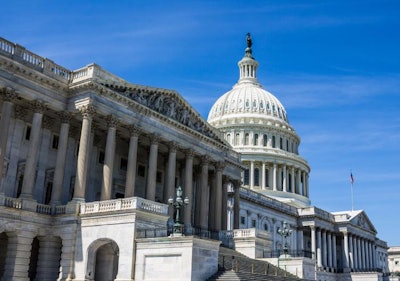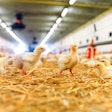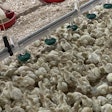
The United States Senate on March 25 approved the Coronavirus Aid, Relief and Economic Securities (CARES) Act, which provides relief for farmers, consumers and rural communities.
The measure was approved by a 96-0 vote, and it is expected to soon be approved by the U.S. House of Representatives and signed by the president.
The two leading members of the Senate Committee on Agriculture, Nutrition and Forestry hailed the passage of the $2 trillion assistance package, which offers billions of dollars in aid to the agriculture industry amid the COVID-19 pandemic.
“The CARES Act provides one of the most powerful and timely economic relief packages in our nation’s history,” Sen. Pat Roberts, R-Kansas, chairman of the Senate ag committee, said in a press release. “Responding to the challenge of the novel coronavirus will require a collective effort from our entire nation. The bill that passed the Senate today represents ideas from both sides of the political aisle but with a shared purpose: to deliver a necessary financial bridge to American households, workers, and businesses through the economic shock from COVID-19.
Sen. Debbie Stabenow, D-Michigan, the committee’s ranking member, said the bill ensures that small towns and rural communities aren’t left behind.
“The relief package will provide stability for our farmers and ensure the American people have a safe and stable food supply,” she said. “Our bipartisan agreement includes targeted assistance to farmers who are experiencing severe financial losses during the pandemic, including fruit and vegetable growers, dairy farmers, and local food producers.”
Support for agrifood industry and consumers
According to a press release from Stabenow’s office, the CARES Act provides the following relief for farmers and ranchers
- $9.5 billion dedicated disaster fund to help farmers who are experiencing financial losses from the coronavirus pandemic, including targeted support for fruit and vegetable growers, dairy and livestock farmers, and local food producers, who have been shorted from receiving emergency assistance in the past.
- $14 billion to fund the Farm Bill’s farm safety net through the Commodity Credit Corporation.
- Eligibility for farmers and agricultural and rural businesses to receive up to $10 million in small business interruption loans from eligible lenders, including Farm Credit institutions, through the Small Business Administration. Repayment forgiveness will be provided for funds used for payroll, rent or mortgage, and utility bills.
- $3 million to increase capacity at the USDA Farm Service Agency to meet increased demand from farmers affected by the coronavirus pandemic.
Stabenow also pointed out the following measures that offer protections for consumers and the food supply:
- $55 million for inspection and quarantine at our borders to protect against invasive pests and animal disease.
- $33 million for overtime and temporary food safety inspectors to protect America’s food supply at meat processing plants.
- $45 million to ensure quality produce and meat reaches grocery stores through increased support for the Agricultural Marketing Service.
- $1.5 million to expedite EPA approvals of disinfectants needed to control the spread of the coronavirus.
Zoonotic animal drug priority
According to Roberts, the CARES Act included a priority zoonotic animal drug designation, which he described as one of his key priorities for the coronavirus legislation. The zoonotic animal drug priority expedites the Food and Drug Administration (FDA) approval of animal drugs that treat zoonotic and vector borne diseases.
“The priority zoonotic animal drug designation will help treat future zoonotic diseases, like the coronavirus, before they cause serious harm to humans,” Roberts stated.
View our continuing coverage of the coronavirus/COVID-19 pandemic.



















